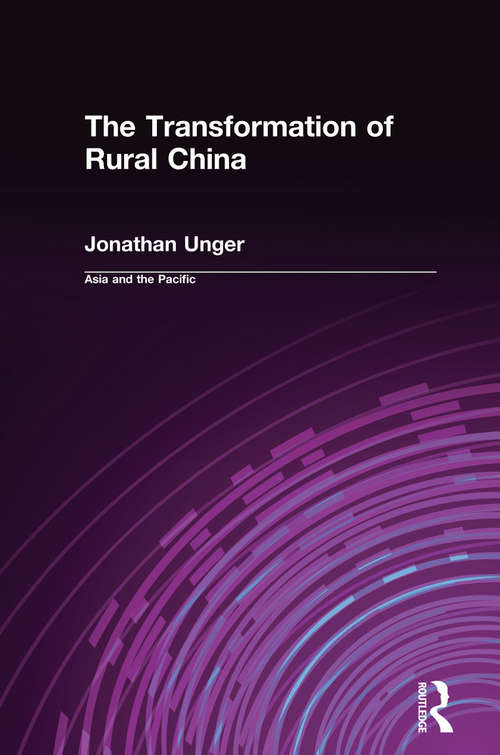The Transformation of Rural China (Asia And The Pacific Ser.)
By:
Sign Up Now!
Already a Member? Log In
You must be logged into Bookshare to access this title.
Learn about membership options,
or view our freely available titles.
- Synopsis
- During the past quarter century Jonathan Unger has interviewed farmers and rural officials from various parts of China in order to track the extraordinary changes that have swept the countryside from the Maoist era through the Deng era to the present day. A leading specialist on rural China, Professor Unger presents a vivid picture of life in rural areas during the Maoist revolution, and then after the post-Mao disbandment of the collectives. This is a story of unexpected continuities amidst enormous change. Unger describes how rural administrations retain Mao-era characteristics - despite the major shifts that have occurred in the economic and social hierarchies of villages as collectivization and "class struggle" gave way to the slogan "to get rich is glorious." A chapter explores the private entrepreneurship that has blossomed in the prosperous parts of the countryside. Another focuses on the tensions and exploitation that have arisen as vast numbers of migrant laborers from poor districts have poured into richer ones. Another, based on five months of travel by jeep into impoverished villages in the interior, describes the dilemmas of under-development still faced by many tens of millions of farmers, and the ways in which government policies have inadvertently hurt their livelihoods.
- Copyright:
- 2002
Book Details
- Book Quality:
- Publisher Quality
- Book Size:
- 188 Pages
- ISBN-13:
- 9781315292038
- Related ISBNs:
- 9780765605528, 9780765605511, 9781315292052
- Publisher:
- Taylor and Francis
- Date of Addition:
- 07/12/23
- Copyrighted By:
- Taylor and Francis
- Adult content:
- No
- Language:
- English
- Has Image Descriptions:
- No
- Categories:
- History, Nonfiction, Social Studies
- Submitted By:
- Bookshare Staff
- Usage Restrictions:
- This is a copyrighted book.
